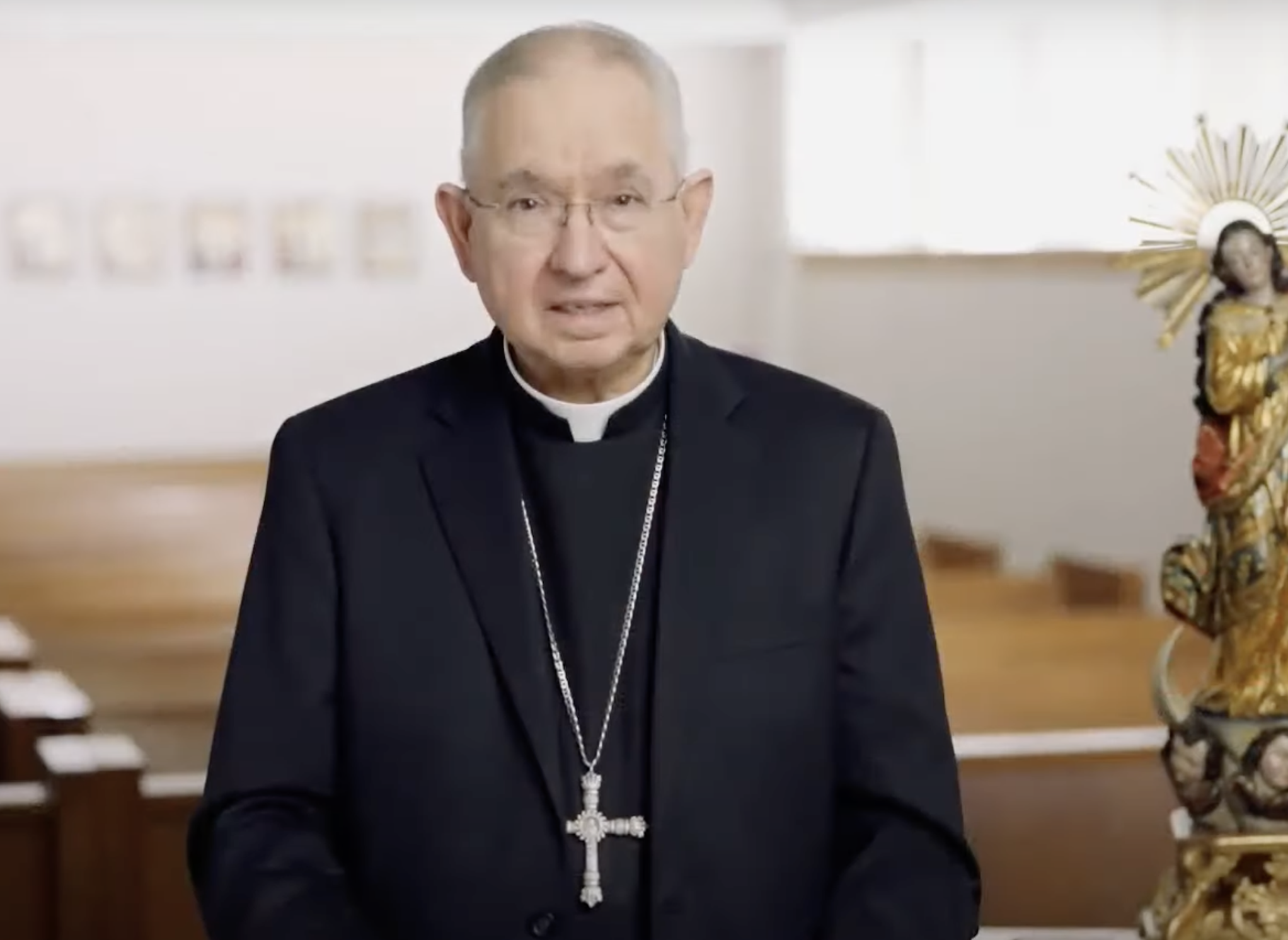
Archbishop Gomez warns against rise of ‘new political religions’
“We should not be intimidated by these new religions of social justice and political identity. The Gospel remains the most powerful force for social change that the world has ever seen. And the Church has been ‘antiracist’ from the beginning. All are included in her message of salvation.”
Archbishop Jose Gomez, Nov. 4 virtual address in advance of 23rd Congress of Catholics and Public Life
By Pablo Kay, Angelus News
In a wide-ranging talk on racial inequality and new social justice movements in America, Archbishop José H. Gomez of Los Angeles cautioned against the rise of what he described as new political religions.
“With the breakdown of the Judeo-Christian worldview and the rise of secularism, political belief systems based on social justice or personal identity have come to fill the space that Christian belief and practice once occupied,” Archbishop Gomez said in an address delivered via video ahead of a congress on Catholics and public life being held in Madrid later this month. The address was reported by Angelus News.
Archbishop Gomez said the new movements have “noble intentions” and aim to address “real human needs and suffering.” They are part of a broader debate over discrimination and injustice in America, which he described as “absolutely essential.”
“The name George Floyd is now known worldwide,” the archbishop said. “But that is because for many people in my country, myself included, his tragedy became a stark reminder that racial and economic inequality are still deeply embedded in our society.”
Archbishop Gomez said the Catholic Church stands with all those who are working to “build a society that provides equality, freedom, and dignity for every person.”
But, he added, “we can only build a just society on the foundation of the truth about God and human nature.”
The new social justice movements, according to Archbishop Gomez, are best understood as “pseudo-religions” and “dangerous substitutes for true religion.”
“Whatever we call these movements —social justice, wokeness, identity politics, intersectionality, successor ideology — they claim to offer what religion provides,” the archbishop explained.
“They provide people with an explanation for events and conditions in the world. They offer a sense of meaning, a purpose for living, and the feeling of belonging to a community. Even more than that, like Christianity, these new movements tell their own ‘story of salvation.’”
But unlike true religions, Archbishop Gomez said the new movements are “profoundly atheistic.”
He compared these new movements to the Marxist-inspired liberation theology of the 1970s and pointed out similarities with ancient Christian heresies such as Manichaeism, Gnosticism, and Pelagianism.
“In denying God, these new movements have lost the truth about the human person,” Archbishop Gomez said, adding: “Because these movements deny the human person, no matter how well-intentioned they are, they cannot promote authentic human flourishing. In fact, as we are witnessing in my country, these strictly secular movements are causing new forms of social division, discrimination, intolerance, and injustice.”
Archbishop Gomez said the Church should respond to these new movements by proclaiming the Gospel “as the true path to liberation from every slavery and injustice, spiritual and material.”
“We should not be intimidated by these new religions of social justice and political identity,” he said. “The Gospel remains the most powerful force for social change that the world has ever seen. And the Church has been ‘antiracist’ from the beginning. All are included in her message of salvation.”
Archbishop Gomez pointed to two American Catholics on the path to sainthood, Dorothy Day and Fr. Augustus Tolton, as the kinds of witnesses the world needs in the current moment.
“The Catholic Church deplores a double slavery — that of the mind and that of the body. She endeavors to free us of both,” Archbishop Gomez quoted Father Tolton as once saying.
The 23rd Congress of Catholics and Public Life, to be held Nov. 12-14 at the Universidad San Pablo CEU in Madrid, sponsored by the Catholic Association of Propagandists, a Spanish Catholic lay association aimed at promoting the faith in the public square. The theme of this year’s gathering is “Political correctness: Endangered freedoms.”
Also speaking at the Nov. 4 pre-event was Spanish Archbishop Mario Iceta of Burgos, who introduced Gomez’s speech by arguing that an “epochal change” in how society defines the concept of freedom is currently underway.
Archbishop Iceta said that today’s Christians are faced with the “great challenge” of living in a modern society which understands freedom as “an absolute element, capable of endowing things with a new meaning, of rethinking and creating everything.
“At a moment in which the term ‘post-truth’ is used, with an interpretation of the world tied to ideologies and in which real truth is confused with the certainty of opinion, Christians must hope in Christ and in the Gospel, since they are capable of dialoguing with all cultures and ways of thinking.”
Christians in today’s world, Archbishop Iceta added, are called “not to confrontation nor hostility, but to the good and the beautiful.”
Editor’s note: The full text of Archbishop Gomez’s talk can be found in English and in Spanish at ArchbishopGomez.org.

